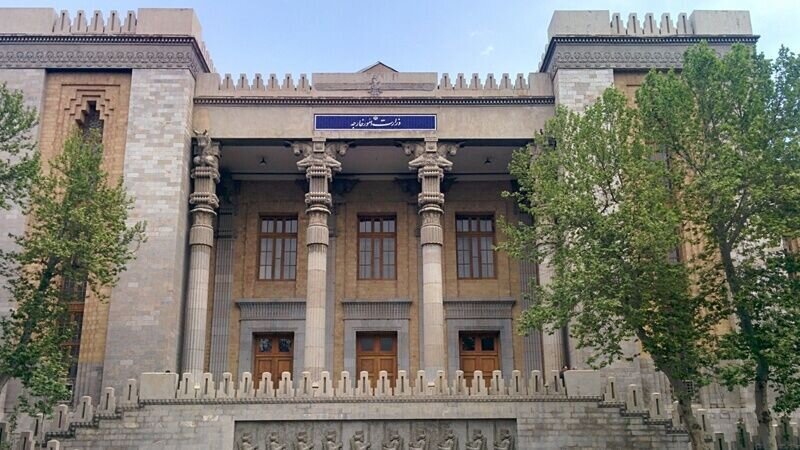Iran summons UK charge d’affaires over unlawful detention of nationals

TEHRAN — Iran’s Ministry of Foreign Affairs summoned the United Kingdom’s charge d’affaires on Monday in response to the “suspicious and unjustified” arrests of Iranian citizens in the UK, denouncing the allegations as “politically motivated fabrications.”
The diplomatic rebuke follows British authorities’ recent charges against three Iranians under its so-called National Security Act, which Tehran has dismissed as part of a broader campaign to exert pressure on Iran.
During the meeting, Shahram Qazizadeh, Director-General of the Foreign Ministry’s Third Western Europe Department, demanded an official explanation from the UK government for the “unlawful detention” of Iranian nationals and the refusal to grant timely consular access.
He emphasized that the arrests, conducted without evidence and in violation of international norms, were “contrary to accepted principles of international law and human rights,” including the Vienna Convention on Consular Relations.
“The responsibility for the adverse consequences of such actions, which appear driven by political motives to pressure Iran, lies entirely with the British government,” Qazizadeh stated, adding that London has deliberately withheld information from Iranian diplomatic channels.
The diplomatic clash follows UK authorities charging three Iranian nationals—Mostafa Sepahvand (39), Farhad Javadi Manesh (44), and Shapoor Qalehali Khani Noori (55)—with surveillance and reconnaissance activities.
The claims, framed as links to a foreign intelligence service, have centered on Iran despite lacking concrete evidence, raising questions about the motives behind the UK’s allegations.
The men, who had sought asylum in the UK between 2016 and 2022, appeared in Westminster Magistrates’ Court on May 17 and face accusations of planning “serious violence.”
Tehran has consistently rejected these allegations, denouncing them as unfounded, politically motivated accusations intended to damage Iran’s global reputation.
Later on Monday, in a tit-for-tat response, the UK Foreign Office summoned Iran’s Ambassador Ali Mousavi, asserting that the charges against the three Iranians were part of efforts to “protect national security.”
A British spokesperson claimed, “Iran must be held accountable for its actions,” though no concrete evidence has been publicly disclosed to substantiate the allegations.
Earlier this month, British "counterterrorism operations" led to the arrest of five Iranians, though they were later released without charge.
In response, the Iranian Embassy in London issued a sharp statement on Saturday, dismissing the matter as “Much Ado About Nothing!”—a remark that showed Tehran’s skepticism toward British counterterrorism claims, which Iranian officials argue have been weaponized to discredit the Islamic Republic.
The arrests coincide with increased diplomatic complexities between Iran and Western powers, particularly as indirect nuclear negotiations between Tehran and Washington have been ongoing since last month.
Some analysts suggest that the UK's actions stem from frustration over its diminished role in diplomatic affairs, prompting British officials to apply pressure as a means of influencing negotiations.
Iran, meanwhile, has consistently cautioned against foreign interference in its internal affairs, particularly as European powers continue to take politically motivated and counterproductive measures.
Leave a Comment